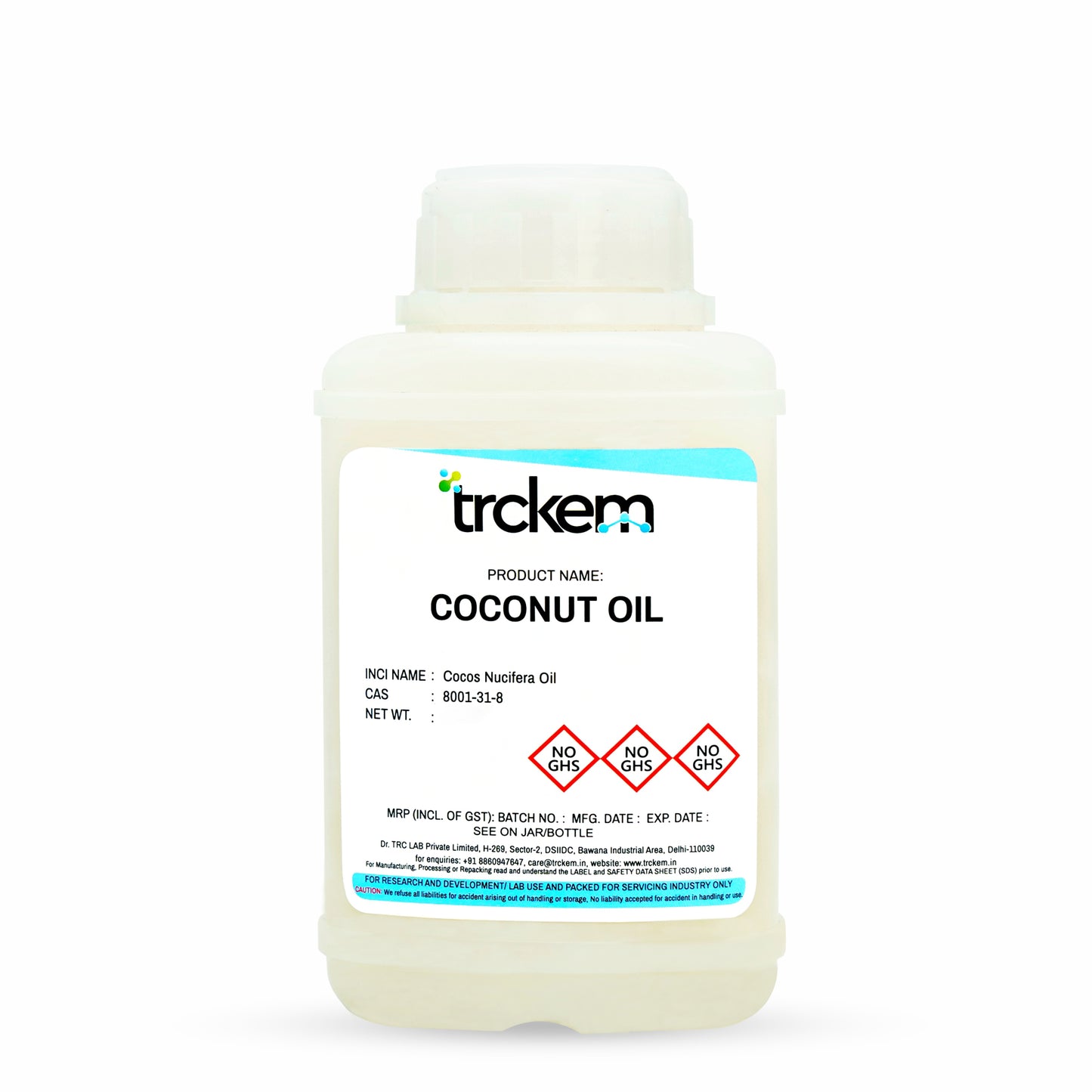
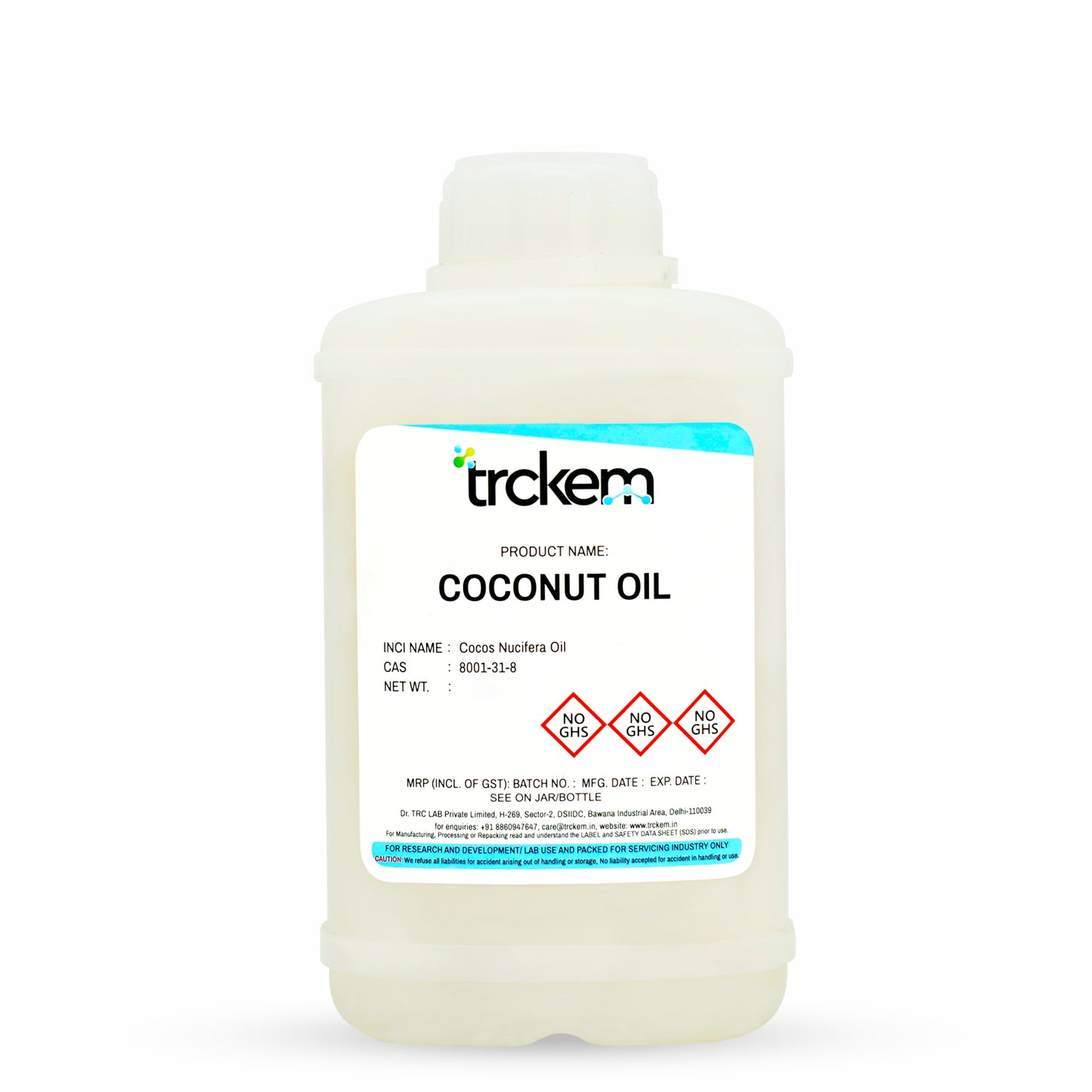
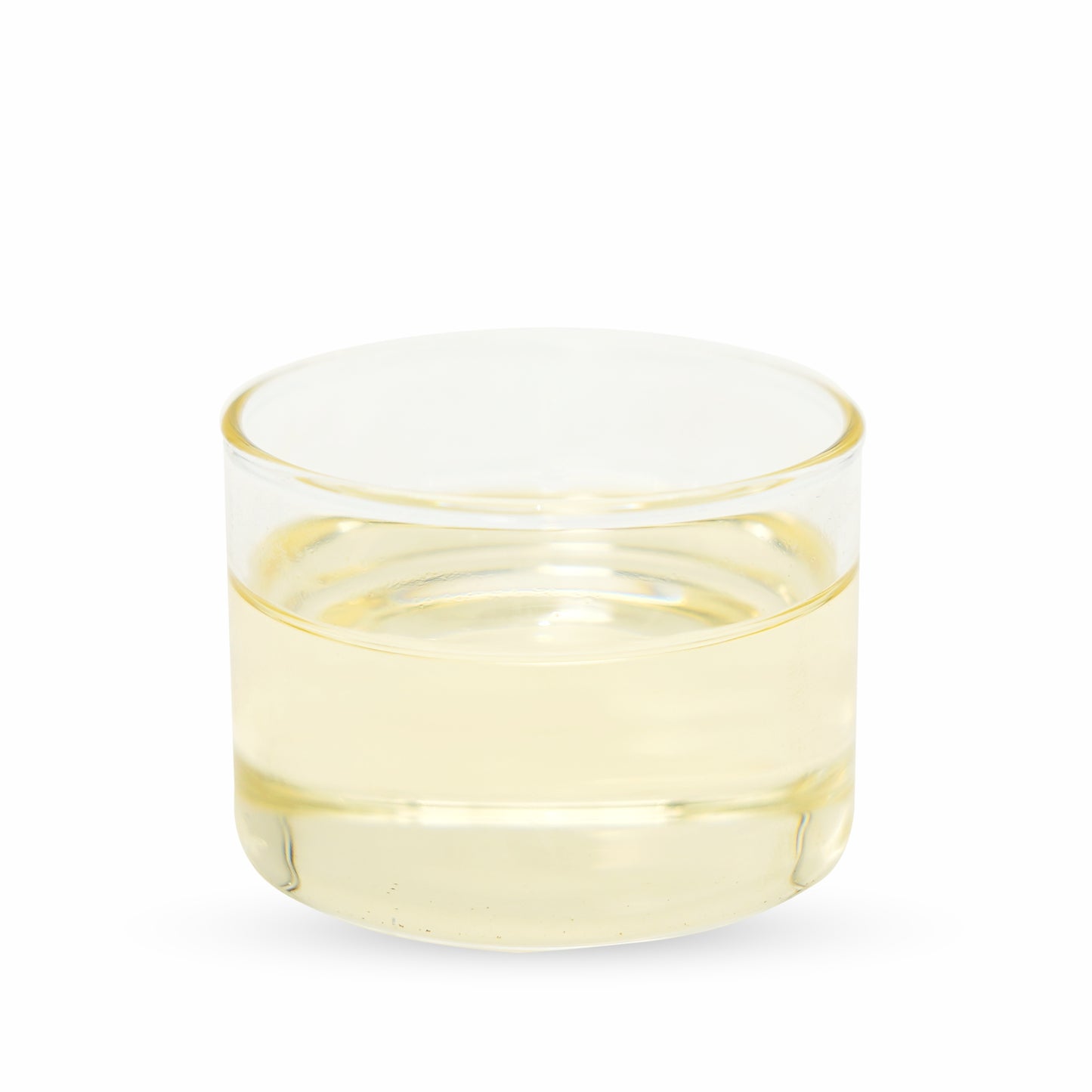
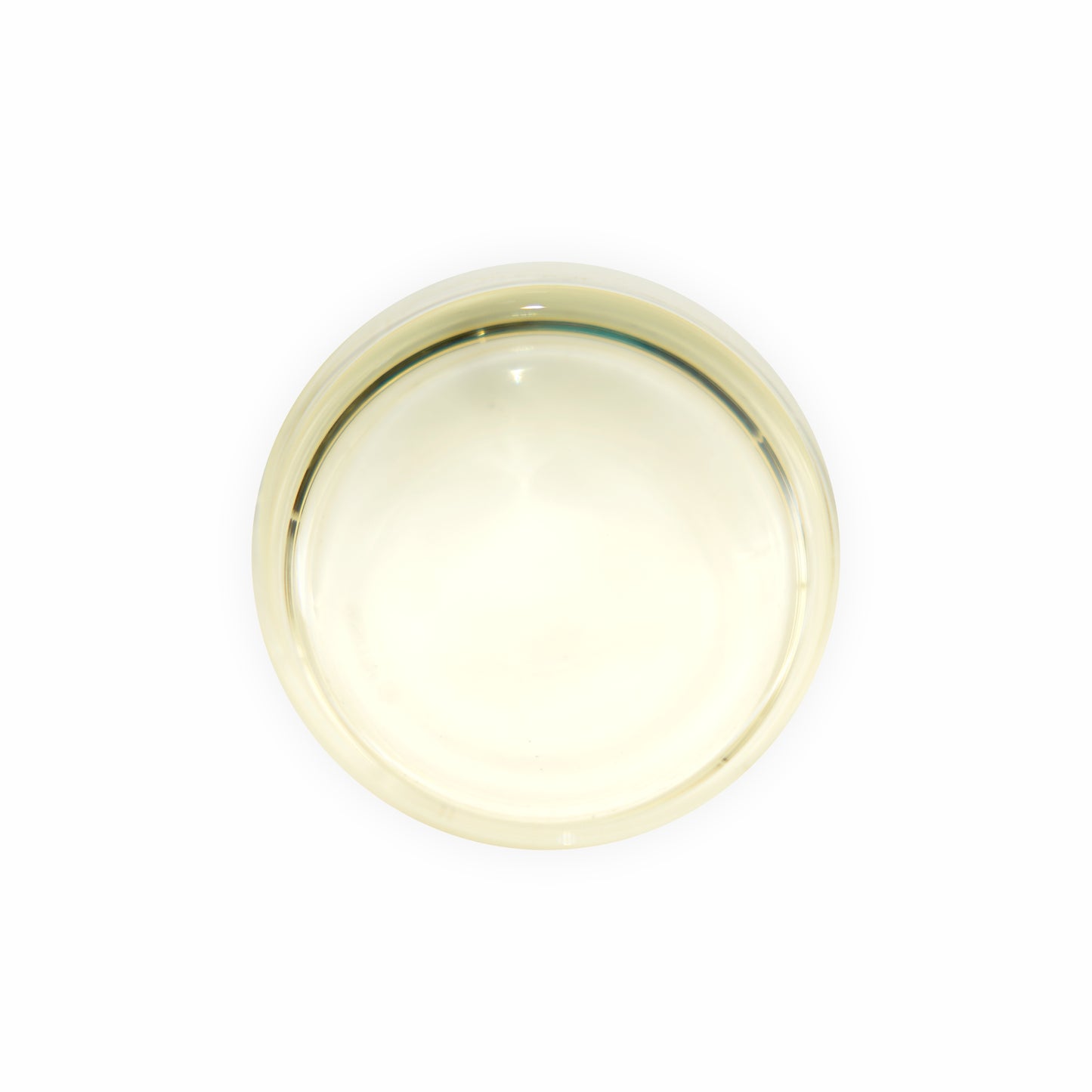
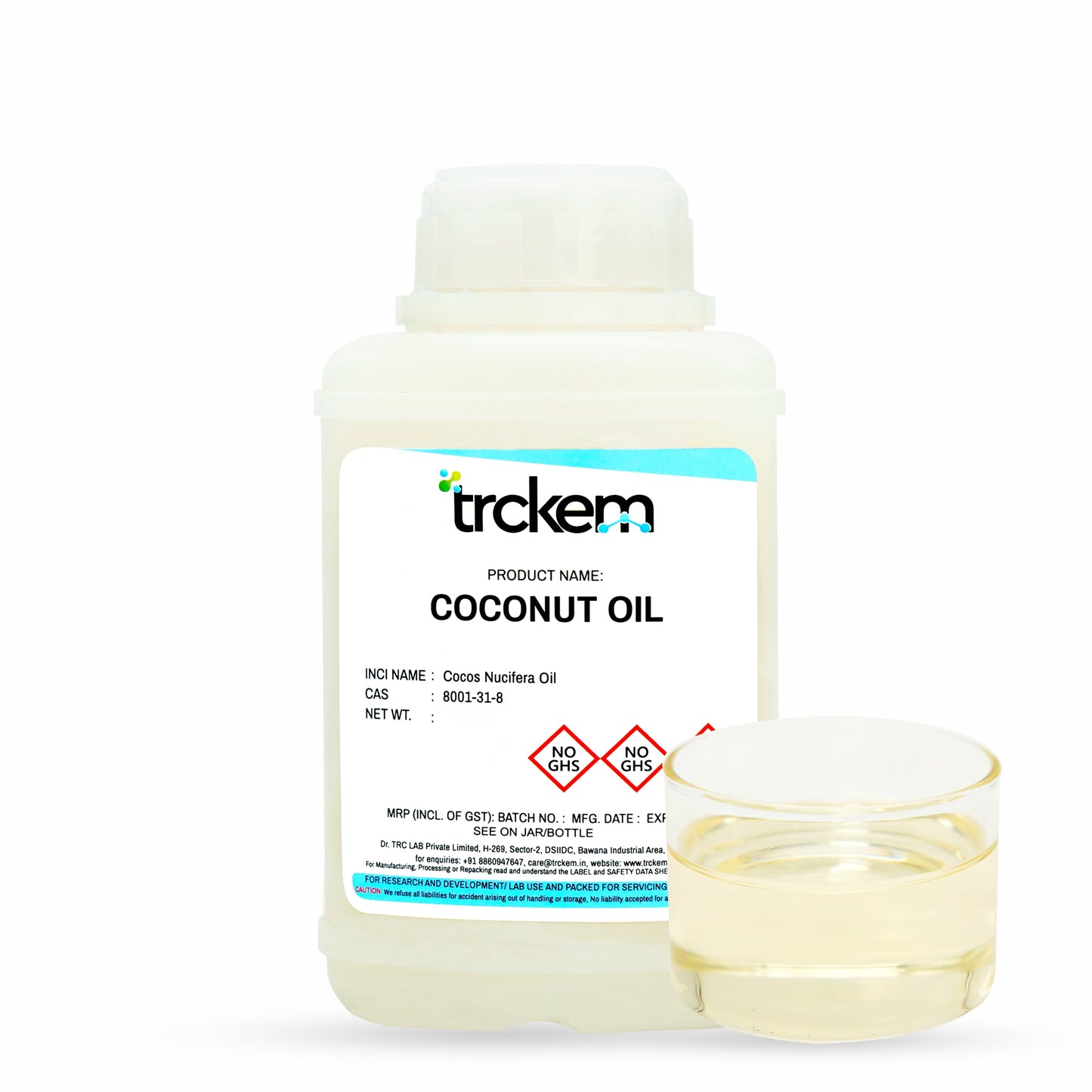
THE STORY OF COCONUT OIL

Coconut Oil: The Iconic Natural Emollient for Nourishment & Shine
Coconut Oil is a multi-functional natural oil extracted from the kernel of Cocos nucifera. Celebrated for its deep moisturizing, antimicrobial, and protective properties, it is widely used in skincare, haircare, and body care formulations for nourishment, repair, and shine. A hero ingredient in natural and clean beauty formulations worldwide.

Cold-Pressed or Refined from Coconut Kernel for Pure Oil Quality
Coconut Oil is obtained through cold pressing or expeller extraction of dried coconut meat (copra).
- Virgin Coconut Oil (VCO): Cold-pressed, rich in antioxidants & nutrients
- Refined, Bleached & Deodorized (RBD): Neutral aroma, higher stability
TRCkem provides both food-grade and cosmetic-grade coconut oils with high lauric acid content and low free fatty acid levels for consistent formulation performance.

Moisturize. Protect. Repair.
Core benefits in cosmetics and personal care:
✅ Deeply moisturizes skin and hair, sealing in hydration
✅ Repairs dry, damaged, or brittle hair strands
✅ Provides antibacterial & antifungal support (rich in lauric acid)
✅ Adds shine and softness to hair & lips
✅ Promotes smooth emulsions and skin-conditioning effects
Used in: creams, body butters, lip balms, soaps, hair oils, baby products, scrubs, and massage oils.

Natural, Safe & Versatile – A Cosmetic Staple
• Typical use level: 1–100% depending on formulation
• Melting point: 24–26°C – may solidify at room temperature
• Oil-soluble; compatible with esters, butters, silicones & waxes
• Approved worldwide for leave-on and rinse-off products
• ECOCERT, COSMOS, and USDA Organic grades available
• Store in cool, dry conditions; avoid prolonged heat or light exposure
• Non-toxic, safe for all skin types, and biodegradable
Formulator’s Queries, We Answered
1. What is Castor Oil?
Castor oil is a natural vegetable oil extracted from the seeds of the Ricinus communis plant. It is widely used in personal care products due to its excellent emollient, moisturizing, and conditioning properties.
2. What is the CAS Number and INCI Name of Castor Oil?
CAS Number: 8001-79-4
INCI Name: Ricinus Communis (Castor) Seed Oil
3. What are the benefits of using Castor Oil in personal care products?
Deep Moisturization – Provides long-lasting hydration for skin and hair.
Natural Emollient – Helps to soften and smooth dry or rough skin.
Hair Growth Booster – Often used to promote healthier, stronger hair and reduce breakage.
Antibacterial & Antifungal Properties – Helps to soothe irritated skin and scalp conditions.
Thickening Agent – Adds texture and viscosity to cosmetic formulations.
4. What are the common applications of Castor Oil in personal care?
Skin Care Products – Used in creams, lotions, and lip balms for hydration.
Hair Care Products – Found in hair serums, conditioners, and scalp treatments.
Makeup & Cosmetics – Used in lipsticks, mascaras, and oil-based cleansers.
Soaps & Cleansers – Adds a rich lather and cleansing properties.
Massage Oils – Used as a base oil for body and scalp massage.
5. Is Castor Oil safe for use in personal care products?
Yes, Castor Oil is considered safe for topical use in personal care formulations. However, it should be used in appropriate concentrations, and individuals with sensitive skin should conduct a patch test before use.
6. Can Castor Oil cause skin irritation?
Castor Oil is generally well-tolerated, but in rare cases, it may cause mild irritation or allergic reactions in sensitive individuals. A patch test is recommended before full application.
7. Is Castor Oil environmentally friendly?
Yes, Castor Oil is a biodegradable, renewable, and plant-based ingredient, making it an eco-friendly choice for personal care formulations.
8. Are there alternatives to Castor Oil in personal care products?
Yes, alternatives include:
Jojoba Oil – A lightweight, non-greasy oil with similar conditioning properties.
Coconut Oil – Provides deep hydration and antimicrobial benefits.
Argan Oil – Rich in essential fatty acids, promoting skin and hair health.
You Might Also Need
-
Vendor:Vendor
Example product title
Regular price Rs. 403.00Sale price Rs. 403.00 Regular priceUnit price per -
Vendor:Vendor
Example product title
Regular price Rs. 403.00Sale price Rs. 403.00 Regular priceUnit price per -
Vendor:Vendor
Example product title
Regular price Rs. 403.00Sale price Rs. 403.00 Regular priceUnit price per







